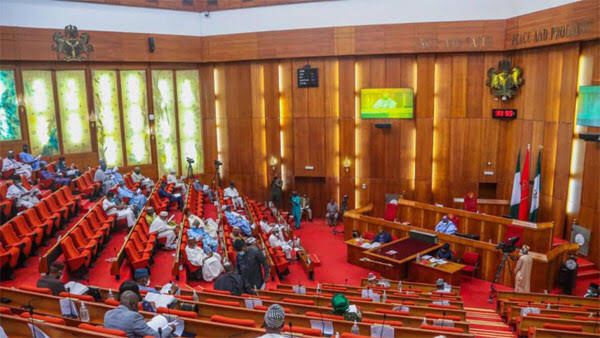
The National Assembly questioned President Bola Tinubu’s loan requests on Monday, as revenue-generating agencies reported exceeding their 2024 targets.
Zacch Adedeji, Chairman of the Federal Inland Revenue Service (FIRS), revealed that the government collected N1.5 trillion in education tax, far surpassing the N70 billion target.
During discussions on the 2025-2027 fiscal strategy, Adedeji noted that total revenue for 2024 could reach N19.4 trillion, with N18.5 trillion already realized by September. Lawmakers expressed concern over ongoing borrowing despite these surpluses, prompting officials to clarify that loans are part of the approved budget to address deficits and fund essential services.
Adedeji stated that while the target for Company Income Tax was set at N4 trillion, the actual revenue has now reached N5.7 trillion.
“On Education tax, while N70bn was targeted, a total of N1.5tn has been realised.
“All in all, out of N19.4tn targeted for 2024 fiscal year, N18.5tn was realised as of the end of September, which clearly shows that the target, will be far exceeded by the end of the year,” he stated.
Mele Kyari, the Group Chief Executive Officer of Nigerian National Petroleum Company Limited, announced during his presentation that the company has surpassed its 2024 revenue target of N12.3 trillion, achieving N13.1 trillion. This figure exceeds projections by N800 billion.
He said, “For the 2025 fiscal year, N23.7tn is projected by the NNPCL to be remitted into the Federation Account.”
Bashir Adeniyi, the Comptroller-General of the Nigeria Customs Service, reported that as of September 30, the agency has generated N5.35 trillion in revenue, exceeding its 2024 target of N5.09 trillion. During his presentation, he outlined plans for 2025, aiming for a projected revenue of N6.3 trillion, with a 10% increase anticipated for both 2026 and 2027.
Members of the joint committees led by Senator Sani Musa expressed astonishment at the revenue-generating agencies’ submissions, questioning why the Federal Government continues to seek foreign loans despite significant increases in internally generated revenues.
Senator Adamu Aliero (PDP Kebbi Central) asked, “What is the Federal Government doing with excess revenues generated by various agencies in light of its ongoing requests for foreign loan approvals?”
The Chairman of the Federal Inland Revenue Service, Zacchaeus Adedeji, in response clarified that the loans requested by the executive are included in the Appropriation Act.
Adedeji said, “Borrowing is part of what has been approved by the National Assembly for the Federal Government, meaning that the executive borrows based on approval of the legislature.
“The fact that we meet revenue targets and even surpassed them as revenue-generating agencies does not mean that the borrowing component of an appropriation law, passed by the National Assembly, should not be activated,” he said.
Senator Atiku Bagudu, the Minister of Budget and Economic Planning, emphasized that the borrowing plans outlined in the N35.5 trillion 2024 budget are primarily intended to address a deficit of N9.7 trillion.
“Despite revenue targets surpassing by some of the revenue-generating agencies, the government still needs to borrow for proper funding of the budget, particularly in the area of deficit and productivity for the poorest and most vulnerable.
“We have a long-term development perspective plan agenda 2050 aiming at GDP per capita of $33,000,” he explained.
The Nigeria Immigration Service faced scrutiny during the interactive session over its controversial Public Private Partnership (PPP) arrangement for passport production, which allocates 70% of proceeds to a consultancy firm and only 30% to the government. Senator Sani Musa, Chairman of the Committee, demanded that Immigration submit all relevant documents regarding this arrangement by the end of the week.
He expressed his discontent, stating, “The so-called PPP arrangement must be reviewed or cancelled because Nigeria and Nigerians are seriously being short-changed.”
